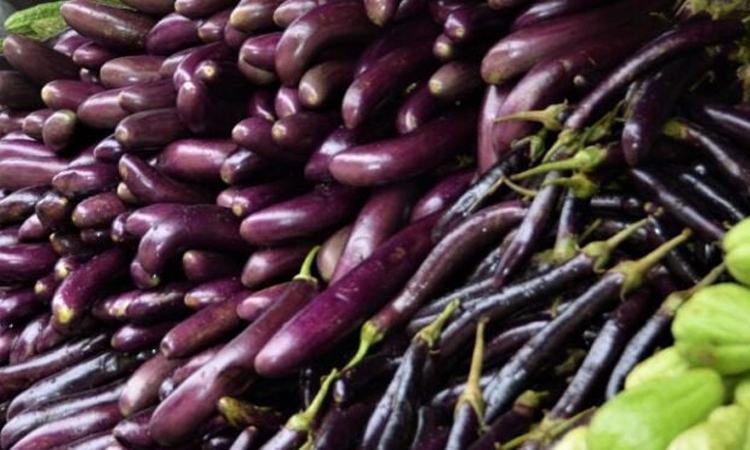News Flash
News Flash

DINAJPUR, Sept 7, 2025 (BSS) - Researchers of Hajee Mohammad Danesh Science and Technology University (HSTU) have achieved success in cultivating poison-free brinjal using bio-fertilizer endophytic bacteria.
The achievement was demonstrated on Saturday at the university's agricultural research field, where brinjal plants treated with bio-fertilizer grew two to three times larger and yielded three to four times more than plants treated with urea fertilizer.
A group of students, led by Associate Professor Dr. Azizul Haque of the Department of Biochemistry and Molecular Biology, has been conducting the experiment.
Team member Md. Shariful Haque said they were able to produce "100 percent poison-free brinjal with three to four times higher yield by applying this bio-fertilizer bacteria."
The researchers conducted the experiment by using bacterial treatment instead of conventional fertilizers and pesticides. As a result, the use of pesticides in the field was reduced to zero while both the yield and size of brinjal improved significantly.
Dr. Azizul Haque said the bacteria could be produced using local raw materials. "Brinjal plants grow extraordinarily after applying bio-fertilizer bacteria. We have prepared nine different consortiums from 32 species of bacteria to produce poison-free brinjal," he added.
MSc student Saikat Ahmed of the Department of Biochemistry and Molecular Biology said they initially experimented with brinjal, tomato and rice, but later focused on poison-free brinjal after getting promising results. He expressed hope that farmers would benefit greatly from cultivating crops by applying only bio-fertilizer bacteria.
Dr. Haque further said it is possible to produce almost three times more yields while reducing the use of chemical poisons in croplands. He hoped that if poison-free brinjal is cultivated at the farmer level, pesticide use and related diseases would decline significantly.
He expressed optimism that this research would be a milestone for future studies on poison-free crop cultivation.